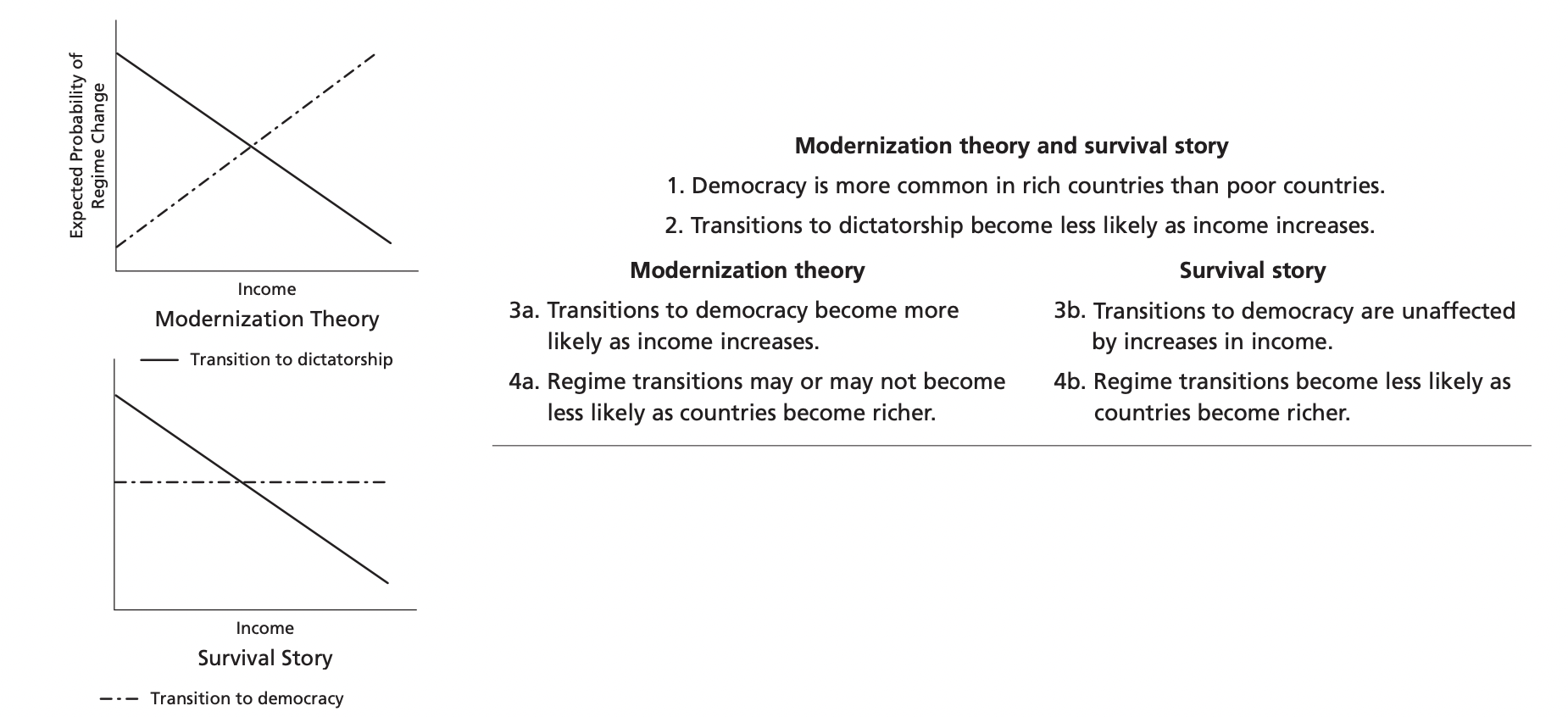POLS 0200 Chapter 6: Economic Determinants of Democracy and Dictatorship
1/3
There's no tags or description
Looks like no tags are added yet.
Name | Mastery | Learn | Test | Matching | Spaced |
|---|
No study sessions yet.
4 Terms
Modernization theory basic summary
Economic explanation for democracy
All societies inevitably pass through the same stages of economic development
Social structure becomes more complex —> technological advancements produces autonomy and private info, civil society emerges, dictatorial forms of control lose their effectiveness
Democracy will develop as countries advance economically, and is more likely to survive in affluent countries
Overall: Modernization theory predicts that economic development will help with BOTH the emergence and survival of democracy
Survival story version of modernization theory + similarities and differences
Economic development only helps democracies SURVIVE but does not help countries become democratic
Helps with sustaining but not with transitioning from dictatorship
Similarities with modernization theory:
Democracy is more common in rich than poor countries.
Transitions to dictatorship become less likely as income increases.

Other variant of modernization theory
NOT economic development that encourages democratization, but changes in the socioeconomic structure that accompany economic development in the modernization process
Shift from agriculture to manufacturing and services
Early modern Europe changes and its effect on England:
Economic changes caused shift in economic power away from traditional agricultural elites who controlled observable assets (crops) to a rising class of wool producers, financial intermediaries, merchants (controlled hard to observe assets)
The state can only predate on observable assets.
This new economic elites middle class can hide assets from state, so monarch had to negotiate to continue extracting revenue through tax
In return for tax, elites demanded limits to state predation
Increasing power of Parliament (institution representing interests of economic elite) vs the monarch
Yay!
yay!